Updated on July 9, 2024 at 2:03 p.m. ET
Born into a wealthy, elite North Korean family, the siblings fled 10 years ago with their parents.
In May, they graduated from Columbia University, among the very few North Korean escapees to do so.
Along the way, Lee Hyunseung, 38, and his sister Seohyun, 32, have had to adjust to a wholly different culture and to a more ordinary lifestyle – earning money at part-time jobs, buying groceries, watching movies with friends and experiencing freedom – something they’re still not completely used to.
“For the first three years after escaping from North Korea, I was more focused on settling down and dealing with various overlapping situations rather than truly feeling free,” said Hyunseung. “I’ve been learning the concept of freedom as I engage with society and receive education.”
As a college student, he was impressed by the ease with which his classmates expressed themselves and even gathered to protest – freedoms they seem to take for granted, but still seemed extraordinary to him.
In late April, he felt envious as he witnessed demonstrations materialize on Columbia’s campus against Israel’s military strikes on Gaza.
“The fact that the United States truly respects freedom of expression strikes a chord in my heart,” he said. “In North Korea or China, it’s unimaginable to even think about such things.”
But when the protests turned violent and the demonstrators occupied buildings on the campus, he felt they had gone too far. “This freedom of expression has gone beyond freedom and is causing discomfort to other students,” he said.
‘One-percenters’
Hyunseung and his sister were born into a privileged family in North Korea – the so-called “one-percenters” who lived at the top of the country’s economic pyramid, far above the masses who often struggled to make ends meet.
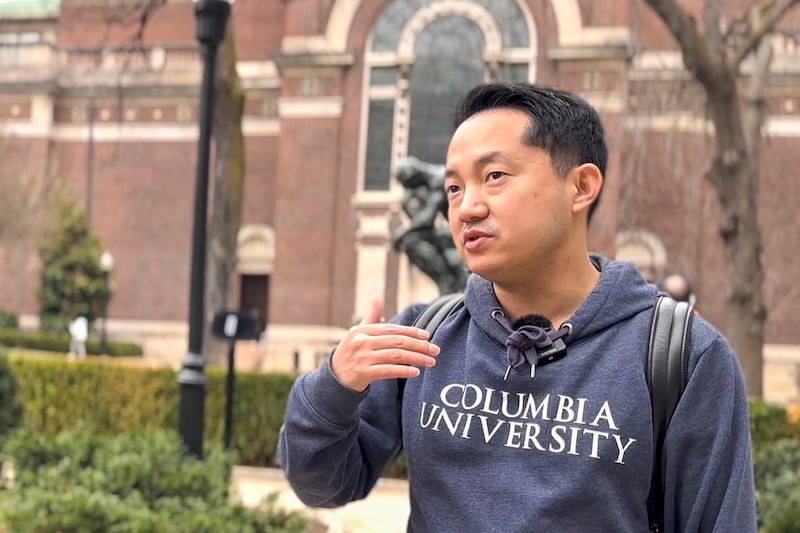
Their father, Ri Jong Ho, was a senior economic official who served under all three generations of the Kim Dynasty – national founder Kim Il Sung, his son Kim Jong Il and his son Kim Jong Un, the current supreme leader.
Stationed in Dalian, China, Ri led a trading corporation under the control of Office 39, a clandestine group formed in the 1970s to manage slush funds for the North Korean leader.
Hyunseung and Seohyun went to an international school in Dalian, where they learned English as well as Mandarin.
Related Stories
[ At UN, North Koreans beg China to stop sending escapees backOpens in new window ]
[ ‘If I don’t have a dream, what on Earth is the point of living?’Opens in new window ]
[ Short film about army life depicts North Korea’s caste systemOpens in new window ]
In 2014, the family saw many members of the upper echelons being arrested or suddenly disappearing in the wake of Kim Jong Un’s purge and execution of his uncle Jang Song-thaek.
Fearing that they could be next, Ri decided to defect. The four family members drove to a local park in Dalian, left their phones in the car and discreetly discussed their escape plans.
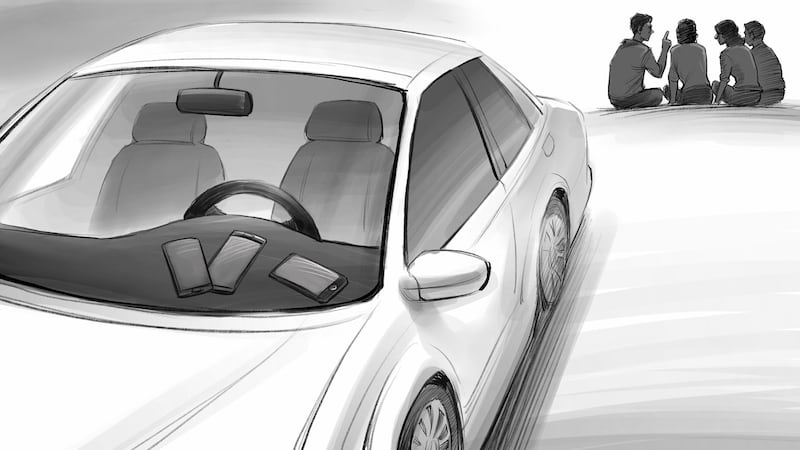
“I couldn’t even dream of escaping,” said Hyunseong, 28 at the time. “I wanted to go to America, but I was at a loss because I didn’t know how to get there.”
They left China in late 2014 for South Korea in what Seohyun described as “a whirlwind” or “a dream” – but declined to describe the details for various personal reasons.
“It was hard to believe that this was actually happening to us,” she said. “It was incredibly tense. We didn’t know who might appear or who might attack us.”
The family landed in South Korea, which readily welcomes escapees, thinking they would be safe there. But they said they were spied on and targeted in hacking attacks by North Korea.
Two years after their escape, the North Korean propaganda website Uriminzokkiri ran a hit piece on Ri featuring his mother and siblings publicly denouncing him and demanding that the family return.
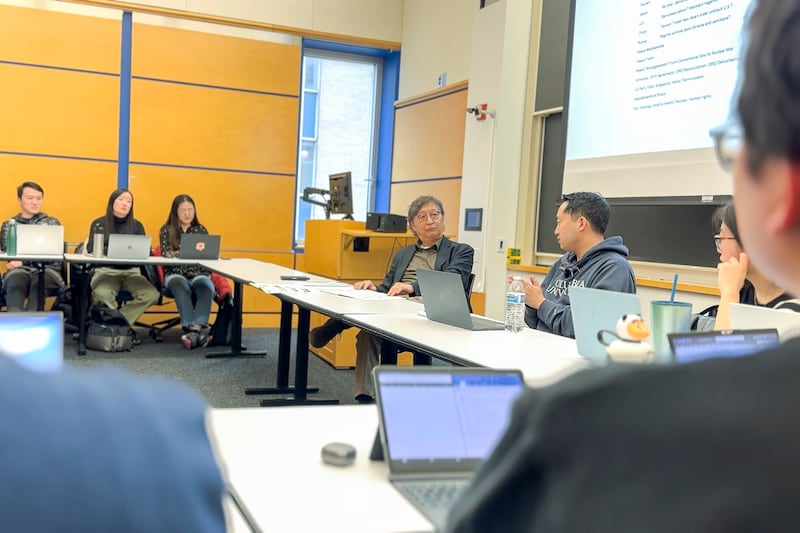
The family took it as a message of intimidation from the North Korean authorities, who are known to punish family members for the actions of its citizens living abroad.
So in 2016, the family left for the United States to seek asylum.
Friends with former enemies
At Columbia, one of Hyunseung’s friends was a member of the U.S. military – an enemy during his previous life in North Korea, where he was required to serve time in the army.
“He is one of my best friends,” said James Brown, an intelligence officer in the U.S. Marine Corps, one of a group of friends meeting at a bar near Columbia after class.
“We have a great relationship. But at one point in time, I’m South of DMZ and he is North of it,” he said. “We were probably doing exercises against each other, so it’s kind of funny.”
The next evening, both Hyunseung and his sister attended a screening of “Beyond Utopia,” a documentary about escape journeys of several North Korean families.
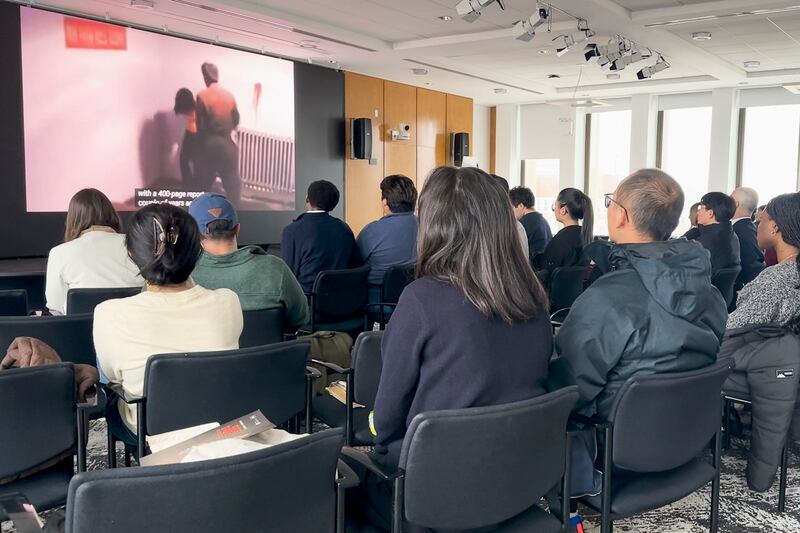
The event was hosted by Korea Focus, a student group affiliated to the university, and Seohyun helped to organize it. “As a student who escaped North Korea, I feel it is my duty to spread awareness,” she said.
Later, while walking through bustling Times Square in the rain, Seohyun reflected on how her journey has contrasted with so many of her compatriots.
“There are many smart and talented individuals in North Korea,” she said. “However, it’s heartbreaking that they live like tools and slaves to the regime, without even the opportunity to realize their own talents.”
Walking with her, Hyunseung said that “when you don’t have freedom, you don’t even realize whether you have it or not. But once you experience freedom, you’ll do everything in your power to never lose it. It becomes more precious.”
Hyunseung often visits a Korean supermarket near the Columbia campus, and is struck by how expensive food has become.
“Prices are quite high here, so it’s hard to decide when shopping for groceries,” he said while perusing the produce aisle with two RFA reporters.
He looks at some expensively priced meat. “I wonder if there are any sales going on?” he wonders out loud.

The total for his groceries quickly climbs above $50, and after another comment about high prices he invites the reporters into his apartment for a meal.
In his tiny kitchen, he chopped vegetables, added spices to a broth on the stove and fried meat. About 40 minutes later, the food was ready to eat – North Korean-style dubu kimchi-jjigae (kimchi stew with tofu)and South Korean-style Dwaeji-kalbi (pork spare ribs).
Pyonghattan
Though Hyungseung is not hurting for money, his living situation, in which he shares a small apartment with two roommates, is a far cry from the life he was born into.
In 2016, the Washington Post introduced Hyunseung's family as part of North Korea's top 1%, saying that when they lived in Pyongyang, they enjoyed a standard of life similar to that of wealthy Manhattan residents.
The report described the lifestyle of young rich Pyongyangers: working out just to be seen, meeting friends in trendy coffee shops for a chat over overpriced cappuccino and going overseas for shopping trips.
The official salary in North Korea at the time was $10 per month, according to the report, but at one of the restaurants frequented by the 1%, a steak with a baked potato costs almost five times as much.
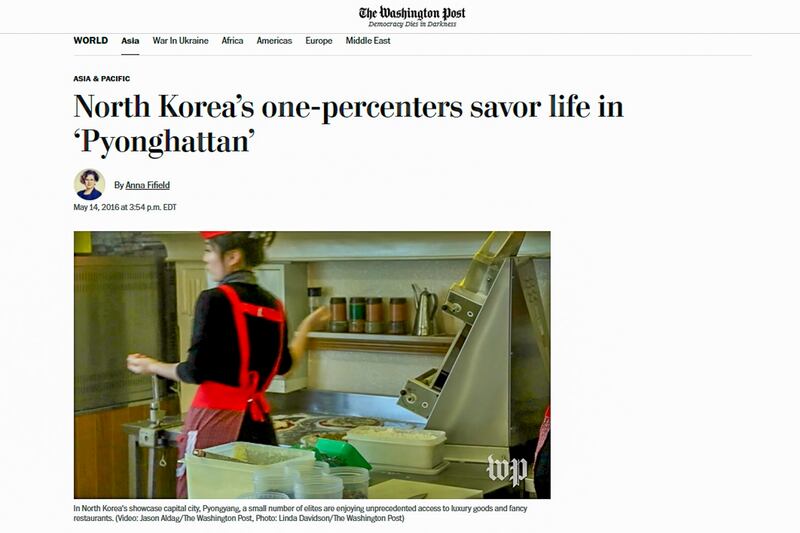
They were living the good life in their insulated elite-class bubble, which the Post described as ‘Pyonghattan.’
When they fled to South Korea, their mother was worried that they had become used to having so many advantages in North Korea that they might not be able to adapt.
“My wife was worried about how we would survive in a capitalist society without money,” their father, Ri Jong Ho, told RFA Korean. “But the kids reassured her, saying, ‘We will go and earn money, so don’t worry about that.’”
It has now been eight years since the family moved to the United States, and their life here has been anything but luxurious. Gone are the days where they could spend money freely. Instead they know the struggles of life as immigrants.
“I worked as a waiter at a ramen restaurant and a valet parking attendant,” Hyunseung said. “I made a mistake while working in the parking lot. A customer got angry with me and he called me ‘some Chinese guy’” – not realizing until later that he was subjected to discrimination.
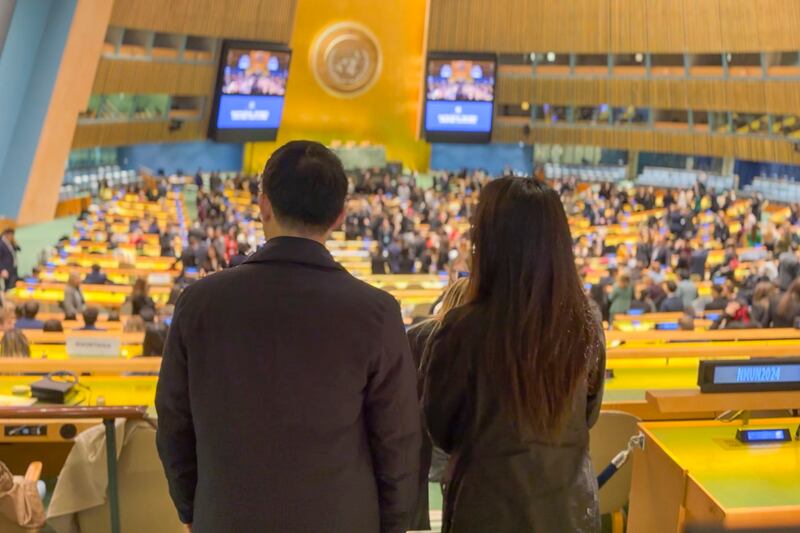
His sister Seohyun is now used to living in New York, and blends in with everyone around her. Ironic considering that when she was in North Korea, she had not even heard of “the city.”
“I had no idea at all,” she said. “We learned about countries and their capitals back in North Korea, so I knew about Washington D.C., but I hadn’t heard of New York specifically.”
At first, she was afraid of going out at night, but now it doesn’t bother her at all.
Hyunseung sits in front of the Alma Mater statue on the steps in front of Low Library, pondering his place in the city.
“I haven’t really thought of myself as a New Yorker yet,” he said. “So I guess I’d say I’m more of a Pyongyang-New Yorker,” he said, with a chuckle.
Translated by Claire S. Lee and Leejin J. Chung. Edited by Eugene Whong.
Update adds related stories.
